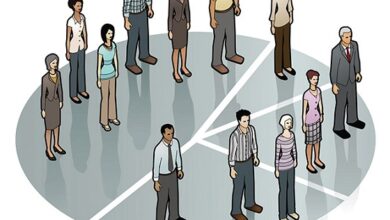What are the 4 C’s of marketing and Usages
4 C’s of marketing
The 4 C’s concept of marketing is used to refer to the marketing strategy focused on the consumer, their wants and needs. The 4 C’s of marketing are consumer, communication, convenience, and cost.
The evolution of consumer trends, as well as new social communication channels, have brought about a transformation in the foundations on which the marketing strategies implemented today by companies are built.
The 4 C’s arise as a complement to the well-known 4 P’s of marketing , product, price, point of sale and promotion.
What makes 4 C’s of marketing?
Thus, while long ago marketing focused on the product or service and its characteristics, today the strategy pivots entirely on the consumer, their wants and needs, motivations and shortcomings.
- Consumer
- Communication
- Convenience
- Cost
Usages of 4 C’s of marketing
The 4 C’s complement the 4P’s of marketing and guide the final marketing strategy. Its human language. The objective is to make the consumer feel listened to and understood by the brand, who offers them all possible facilities so that their shopping experience is simple, comfortable and fast and so that their relationship with it is close and natural.
- Consumer: It is the axis of the strategy and the brand must provide them with a differentiated value proposition throughout the sales process, from their first approach with the marketing campaign to the sale and without forgetting the after-sales service. For example:
- Do I know my consumer? How can I improve to better meet your needs? Am I effectively serving your needs?
- Practice active listening to know in depth their desires and motivations, be proactive in delivering solutions and speed up delivery time, among other things.
- Communication: The goal is to establish close relationships. Brands pursue two-way and personalized communication with their target audience through their favorite channels, among which social networks play a fundamental role.
- Am I accessible to my consumer? Do I add value by offering innovative solutions? Do I offer several ways of contact? Do I solve your doubts or problems in an agile way?
- Offer a good customer service that efficiently and agilely manages consumer issues.
- Convenience: It is about offering a simple, well-organized and time-saving purchasing process for the consumer.
- Does my website have filters to find the product more quickly? Does the purchase process have a lot of clicks?
- Reduce the number of steps required in selling through the web, create loyalty systems based on rewards or offer other products that complement or more dress the selected product. In short, offer a good shopping experience that invites you to repeat in the future.
- Cost: It goes beyond the price paid by the consumer, since it encompasses other elements that may cause their refusal to finally make the purchase, that is, it analyzes the impediments that the consumer has to make the purchase.
- Do queues tend to form at my store? Does it take a long time to get to the store? Is the price information accessible? Does the online purchase process have many steps? Do I force the buyer to complete a registration form in order to buy?
- The consumer is more or less price sensitive depending on how good the overall shopping experience is. If the desired product is in a distant, small location and queues are formed to pay, you will be willing to assume all that cost of travel, time and price if the product is really desired. If not, you will perceive the cost as very high and decline the purchase, looking for other options with a lower overall cost.
As we have seen, marketing techniques and strategies change over time to adapt to current trends. Thus, today’s techniques may become obsolete in the future, thus having to reinvent new strategies to reach the consumer and make them perceive the brand as attractive and desirable.




